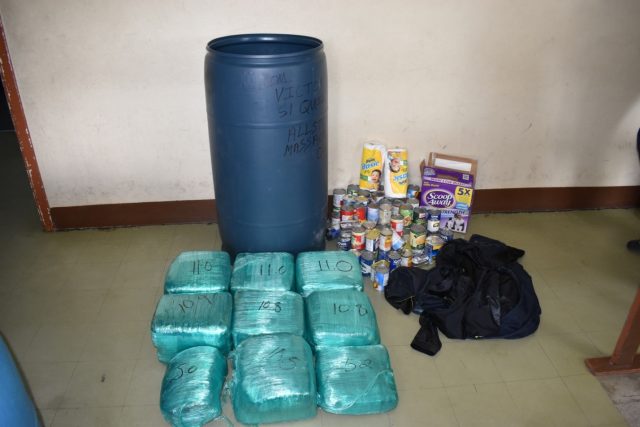This news article is a production distributed through Caribbean News Service. It is made freely available to your media and we encourage publishing and redistribution, giving credit to Caribbean News Service (CNS).
BELIZE CITY, Belize, Apr 22 2016 – The Caribbean Regional Fisheries Mechanism (CRFM) this week sealed an agreement with a UN agency to strengthen governance arrangements for the flyingfish fishery in the Caribbean, with special emphasis on maximising the long-term potential of the fishery, which employs several thousands in the region and feeds many more.
Milton Haughton, Executive Director of the CRFM, signed the Memorandum of Agreement for Caribbean States; while Kirk Bayabos, Senior Cluster Manager, signed on behalf of the project executing agency, United Nations Office for Project Services (UNOPS), a subsidiary of the UN.
The agreement is under a five-year umbrella project, the UNDP/GEF Catalysing Implementation of the Strategic Action Programme for the Sustainable Management of shared Living Marine Resources in the Caribbean and North Brazil Shelf Large Marine Ecosystems (CLME+) Project, designed to catalyse the implementation of a 10-year Strategic Action Programme (SAP), focused on the sustainable management of shared living marine resources harnessed from the large marine ecosystems in both the Caribbean and the North Brazil Shelf. The SAP was endorsed by the ministers of CARICOM responsible for fisheries and/or environment in 2014.
The Caribbean Sea is described as a semi-enclosed sea adjacent to the Atlantic Ocean, south to the Gulf of Mexico. It is one of the largest salt water seas with a diverse marine life that is fundamental to the livelihoods of coastal communities, project documents detail.
It is within this expansive marine space – spanning more than a million square miles – that the flyingfish, a species of fish which has a life-span of less than one year, but which spawns as many as 7,000 eggs several times between November and July, is known to thrive in a zone spanning from Dominica to Trinidad and Tobago.
Due to its vast socio-economic value, the CLME+ buttresses two of the re pillars: tourism and fisheries. However, these ecosystems are today being adversely impacted by pollution, habitat degradation and unsustainable fisheries and fishing practices. The 10-year SAP created under a forerunner CLME Project is aimed at tackling those threats, while also combating the threats which climate change poses to sustainable fisheries.




